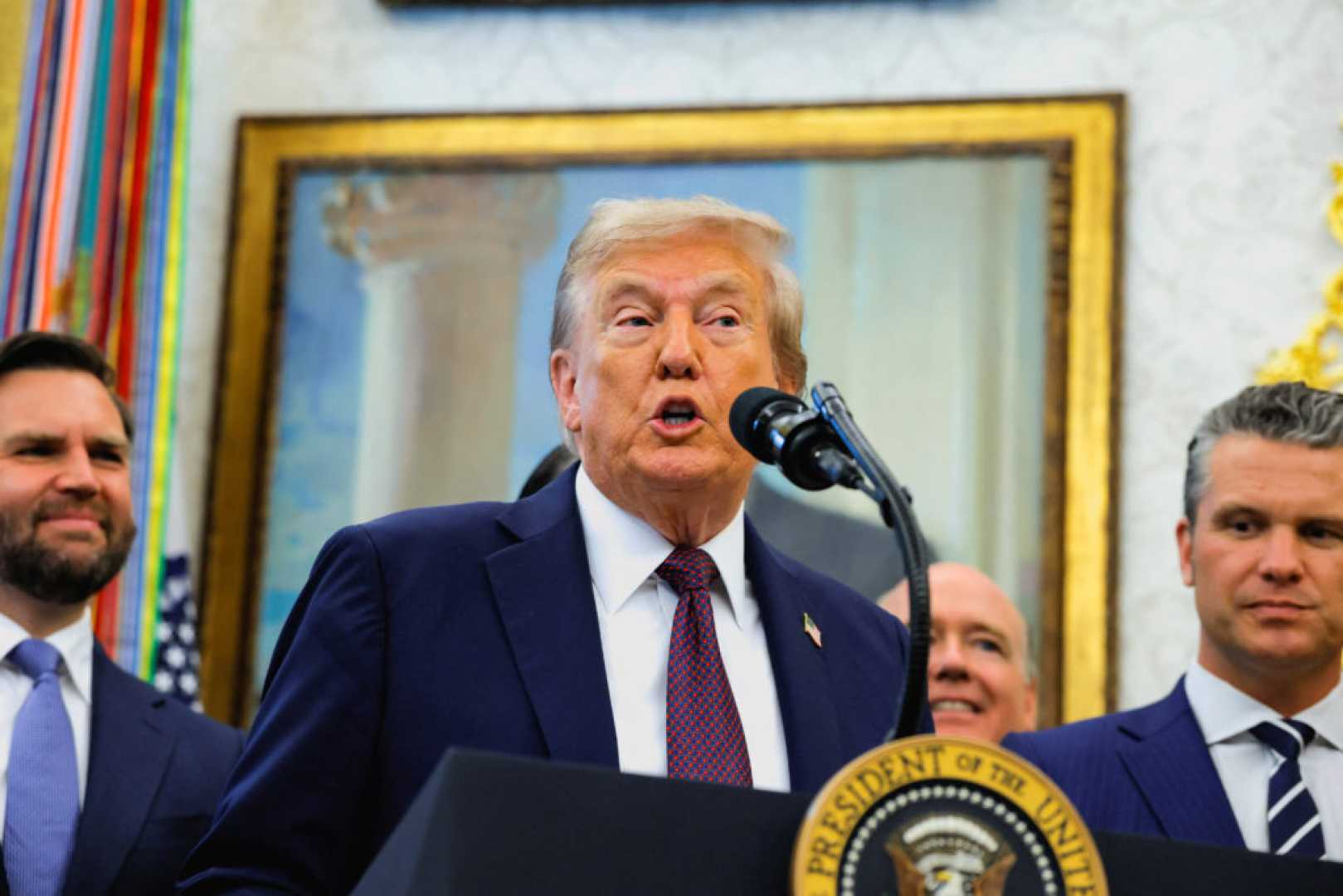Politics
Trump Rebrands Pentagon, Raises Concerns Over Military Use

WASHINGTON, D.C. — President Donald Trump signed an executive order on September 5, 2025, to rebrand the Department of Defense as the Department of War, a move that has sparked controversy and raised concerns about the future use of military force.
Trump’s reasoning behind the change was that the name sounded stronger and more fitting for his administration’s policies. However, critics argue that the rebranding is a distraction from pressing issues and could lead to a more aggressive military posture both domestically and abroad.
“This is not a joke or a normal action for a president; it’s a serious threat to American cities like Chicago,” commented Illinois Governor JB Pritzker. His remarks came as Trump hinted at an upcoming immigration enforcement operation in the city, ominously stating, “Chicago will find out why it’s called the Department of WAR.”
Such rhetoric has alarmed local leaders, with Chicago Mayor Brandon Johnson condemning Trump’s threats as authoritarian. Trump’s comments and actions reflect a dramatic shift towards a more militaristic approach in handling issues related to immigration and national security.
In a speech, Defense Secretary Pete Hegseth supported the new direction, advocating for a more offensive military strategy instead of a defensive one. “We’re going to go on offense, not just on defense,” he declared.
Trump’s administration recently executed a military strike against a vessel linked to Venezuelan drug cartels, which they labeled as terrorist organizations. Despite claiming constitutional authority, legal scholars have questioned the legality of these actions. Oona Hathaway, a Yale Law professor, expressed her concerns, stating, “The decision to blow up the boat instead of conducting an interdiction is both illegal and immoral.”
As Trump continues to push for military tactics traditionally reserved for foreign conflicts, the implications for civil liberties and domestic law enforcement remain unclear. Critics in Congress, including Senator Rand Paul, have voiced their worries about the evolving use of military power in America.
The ramifications of Trump’s rebranding effort and his increasing militarization of domestic policy will unfold as local and national leaders respond to the changes in policy and rhetoric.












